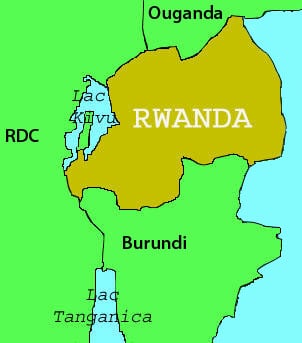Who Triggered the Rwandan Genocide? Key witness in French Inquiry into 1994 Rwanda Plane Crash Disappears

A key witness for a French court investigating who triggered the Rwandan genocide has gone missing in Kenya after a Paris judge insisted the witness’ name be identified in legal documents – a move critics say compromised his safety.
The witness had been informed earlier that day that Judge Marc Trevidic was willing to hear his testimony. “I sent this news to Mr Gafirita on Thursday by email and overnight he was taken,” his lawyer Francois Cantier told Digital Journal.
Gafirita understood his identity would be disclosed in the proceedings but agreed to provide testimony anyhow, Cantier said. “Of course I warned him of the risks.”
The witness was due to tell the judge that as a young soldier in the Rwandan Patriotic Army — then led by Paul Kagame — he helped transport missiles that were used to shoot down the plane carrying former Rwandan president Juvenal Habyarimana and his Burundian counterpart Cyprien Ntaryamira, the lawyer confirmed.
The assassination of the two presidents unleashed the 1994 genocide in Rwanda, where hundreds of thousands of ethnic Tutsis and Hutus were slaughtered by Hutu extremists.
Cantier said that “under French law, the anonymity of a witness can be guaranteed. I proposed this be done but the judge did not agree.”
“He believed that the declarations of the witness would identify who he was, in any case.”
“The judge said that masking the identifying information in the declaration would have rendered the testimony useless,” Cantier explained.
Meanwhile, a lawyer defending the Rwandan officials indicted by the French court admitted he indeed passed on Gafirita’s name to his clients in Rwanda, several of whom are top aides to President Kagame.
“You’re asking me whether I informed my clients but every normal lawyer informs his clients of the evolution of a case,” Leon Lev Forster told Digital Journal.
“Authorities in Kigali are not my clients,” Forster bristled. “The six people who are being prosecuted in this case were informed…a lawyer is obliged to indicate to his clients what the procedures are.”
“It is perfectly legitimate that clients be informed of the reasons a case is reopened,” he insisted. “But we only got access to the dossier very late so we didn’t know when this witness was going to be heard or where he was.”
“The judge could have been more careful,” said Filip Reyntjens, who teaches African studies at the University of Antwerp in Belgium and is the author of the book, Political Governance in Post Genocide Rwanda.
In an email to Digital Journal, Reyntjens said the judge should have agreed to reveal Gafirita’s name only after he arrived in Paris instead of leaving him “completely on his own in Nairobi where he was expected to be prey for Rwandan operatives.”
Kagame has for years been credited with routing extremists responsible for committing genocide. But his government has increasingly been accused of jailing, kidnapping and killing critics at home and abroad.
Gafirita’s lawyer expressed moral outrage at his apparent kidnapping.
“We have a terrible situation, one of the worst yet. There has been manipulation in every sense,” Cantier lamented. “I’m not taking sides here; I’m a human rights defender. But I am scandalized by what has happened. This Rwandan tragedy is still upon us. It’s terrible and unacceptable.”
The French inquiry into the downing of Habyarimana’s plane had been due to wrap up shortly. Many observers believed the charges against the Rwandan officials would to dropped. But in a surprise move last month, the judge announced the investigation was reopened.
Forster suggested Gafirita’s disappearance might be a political stunt by the opposition.
“This person was supposedly taken at night on a well lit street in front of everyone,” Forster said. “Was he really kidnapped? I don’t know. I can’t say he wasn’t. I can’t say either that it wasn’t staged. It could have been staged as part of a destabilization campaign that has been part of this case.”
Gafirita was a teenager when he joined the Rwandan Patriotic Front in 1991. He served in Kagame’s High Command unit for more than a decade until he went to Darfur where he became a driver for Rwandan peacekeepers. He broke with the regime in 2009 and fled to Uganda before seeking refuge in Kenya.
Copyright Digital Journal 2014

